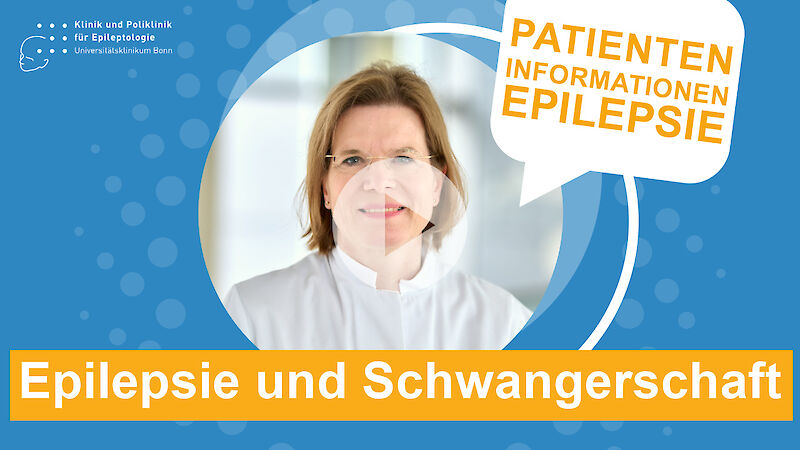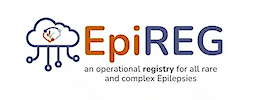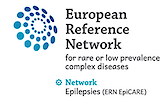Epilepsy and Pregnancy
Here you can find the most important information on the subject of epilepsy and pregnancy.
Watch our YouTube video on the topic or continue reading on this page.
Click here to watch the video "Epilepsy and Pregnancy" on YouTube.
People with epilepsy, like many others, understandably have the desire to start a family. You might wonder if epilepsy poses challenges for pregnancy or childbirth or if there are potential risks to the unborn child while taking seizure-suppressing medications during pregnancy.
First, the good news: for most couples affected by epilepsy, there is no obstacle to fulfilling their wish for children. However, it is essential to seek proper guidance and support from the very start.
If you or your partner has epilepsy, and are currently taking medication for it, you should first contact your physician with regard to your desire to start a family. A detailed consultation will help you understand the steps necessary for planning a preganacy, which might include switching medications and checking the drug levels in your blood. Some medications can harm an embryo, so adjustments should be made beforehand. Before pregnancy, women taking such substances should definitely switch medications.
Like any other pregnant individual, you are advised to take 400 micrograms of folic acid prior to conception to help prevent the risk of developmental defects. Additionally, the general recommendations for a healthy lifestyle apply, including avoiding alcohol and tobacco and maintaining a balanced diet as part of preparing for pregnancy.
Even for people with epilepsy, fertility treatment is an option if conception does not happen naturally. The chances of success are just as high as for couples without epilepsy.
Many expecting parents with epilepsy wonder whether their child will also have an increased risk of having epilepsy. This risk only exists for epilepsy types that have a genetic cause. However, relatively common genetic generalized epilepsies (also called idiopathic generalized epilepsies) are not caused by a single identifiable genetic defect but usually have multifactorial causes. The risk for offspring developing a genetic generalized epilepsy is therefore only between three to six percent. Most babies are born healthy, even if genetic factors are involved.
In the case of mono-genetically caused epilepsies, i.e. diseases caused by the mutation of a single gene, the probability of passing on the disease to offspring is significantly increased. For a parent with the condition, the risk of inheritance can be up to 50%. Consult with your neurologist about the type of epilepsy you have and how high the genetic risk is for your offspring.
Men mainly inquire about how epilepsy and the medication they are taking might affect libido and potency. Questions concerning a potential change in sperm quality are also raised. It is reassuring to know that seizure-suppressing medications are unlikely to impact sperm quality!
Ideally, you should seek advice from your neurologist prior to your pregnancy. Once pregnant, you should consult a gynaecologist and return to your epilepsy centre or your neurologist's practice. At this stage, a new EEG will be performed, and it will be checked as to whether your medication is well adjusted. The levels of your medication in the blood, along with other blood values, will be measured, and if necessary, the medication dosage will be adjusted. Due to metabolic changes during pregnancy, a higher proportion of medication may be excreted, and this excretion rate changes over the course of pregnancy.
During your pregnancy, the frequency of neurological check-ups depends on your individual situation.
Your gynaecological practice will probably also offer you a more intensive prevention program as part of your pregnancy support. Pregnancies in epilepsy patients are considered high-risk pregnancies. The advantage of this is that you are then entitled to a higher number of organ ultrasound examinations than usual.
In the best case scenario, the gynaecological and neurological consultations go hand-in and both specialities would accompany you in partnership during this exciting time.
If your epilepsy is controlled well with medication, you need not worry about epileptic seizures occurring more frequently during pregnancy. If the medication dosage is adjusted during your pregnancy, it will work just as effectively as it does outside of the pregnancy. Seizures which occur during pregnancy are not more dangerous for the expectant mother than they are outside of the pregnancy. For the child, even minor focal seizures are not dangerous. The child has its own haemoglobin, ie., an oxygen transporter, in the blood ensuring good oxygen supply. Severe seizures with falls, especially if they occur frequently, last for a long time, or progress into status epilepticus, can be dangerous. Older observations have shown that children whose mothers had frequent tonic-clonic seizures during pregnancy may develop less well and could later be impaired in their mental abilities. A good medication regimen is therefore very important.
Many women with epilepsy fear that they will have an epileptic seizure while giving birth and could potentially disrupt the entire delivery room. This risk is very low and only amounts to 1 and 3 percent, at most. What you should definitely remember is to have a sufficient supply of medication on-hand in your hospital bag and, ideally, in all of your handbags as well. This is because your stay in the maternity ward could be longer than expected, and sometimes the specific seizure-suppressing medications may not be readily available in the delivery room.
Many women also wonder if they can be given epidural anaesthesia during labour to relieve pain. This is also possible for women with epilepsy. Having epilepsy is not an indication for a caesarean section; each affected woman can deliver her baby naturally, just like any other woman.
Immediately after the birth, your baby will be thoroughly examined by a paediatrician to check for issues, e.g. to determine whether there is a weak suction response. Therefore, it is recommended to give birth in a medical centre with on-site paediatricians and an intensive care unit in case of an emergency. Home births or births in a birthing centres are not advisable.
Breastfeeding is the best protection for your baby and as long as your child appears to be doing well, is drinking enough and is growing, there is no reason not to breastfeed. Although the medication you take yourself passes into the breast milk, your child is already familiar with the substances from the womb. If you breastfeed less and less over time, you will slowly but surely reduce the dose of medication that your baby is already used to.
After pregnancy and childbirth, a woman’s body changes again, causing medications to break down and be excreted more slowly. Therefore, adjusting the medication dosage might be necessary. If this is not done, symptoms like vertigo, double vision, nausea, vomiting and gait/balance disturbances can occur. Returning to the original medication dosage normally occurs within 18-21 days postpartum.
Also note that as young parents, you might have a disrupted night’s sleep if your baby frequently wakes up and cries. In certain circumstances, sleep deprivation can increase the probability of seizures occurring. Involve your partner in caring for the baby at night from the very beginning. It can be a big help if the baby is handed to you when it's thirsty.
When caring for an infant, it is important to ensure that a person with epilepsy does not bathe the baby alone and always secures the stroller properly. Babies can be changed on the floor instead of a high changing table, from which they could fall. Avoid situations where a child could be put in danger due to a caregiver experiencing an epileptic seizure.
Don't be afraid!
Over 95% of pregnancies in women with epilepsy progress very well when they are carefully planned and managed. Seek out an early consultation at a specialised centre and speak with the experts there who are familiar with the topic and approach your future with children confidently.
- In the19th episode of our Bonn Epilepsy Podcast "Scharfe Welle", we speak with PD Dr. Randi von Wrede about pregnancy and childbirth with epilepsy.
Have a listen!
- You can also watch our YouTube-Video on Epilepsy and Pregnancy here. (German only)
























